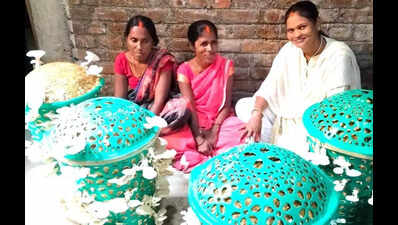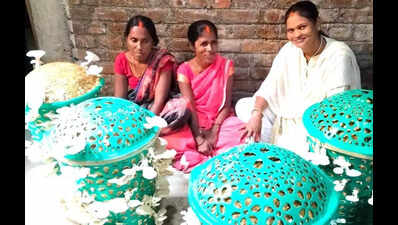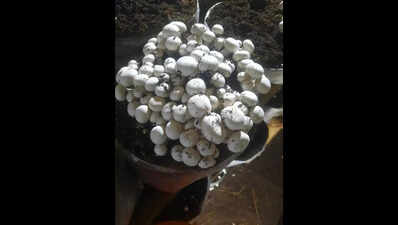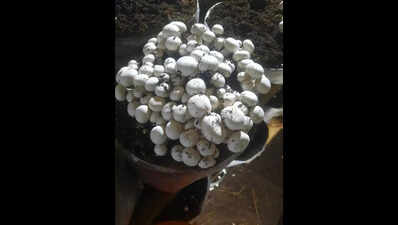- News
- City News
- patna News
- From agri waste to mushroom industry
Trending
From agri waste to mushroom industry
Patna: Can Bihar farmers offer a solution to the perennial problem of stubble burning that chokes New Delhi and drives AQI through the roof? It seems they can – and in style. With a creative twist, they are converting agricultural waste into a mushroom industry, setting an example for states like Punjab to follow.
A video shared by Bihar's agriculture department showcases farmers growing mushrooms in plastic packets, using compost made from stubble and straw. This innovative technique allows them to produce mushrooms year-round with some farmers harvesting 200–300 kilograms daily.
"We are now the number one producer of mushrooms in the country," said Sanjay Kumar Agarwal, secretary of the state agriculture department. "But this has been a long and tough journey. It all started in 2013 when I was the district magistrate of Nalanda. Back then, we collaborated with young entrepreneurs to initiate mushroom farming in Silao," he said.
Initially, farmers had to rely on distant institutions like the Directorate of Mushroom Research in Solan, Himachal Pradesh, and G B Pant University in Uttarakhand for mushroom spawn. "The state govt then established mushroom production units in Rajgir and Chandi blocks of Nalanda, which became game-changers," Agarwal recalled.
And the results speak volumes. According to the latest data from the National Horticulture Board (NHB), Bihar emerged as the leading state in mushroom production, contributing 35,000 metric tonnes in FY 2022–23 — an impressive 11% of the national total.
"Mushroom farming has become a staple of Bihar's agriculture. The state's favourable climate, combined with govt-led training programmes and subsidies, has turned it into a lucrative venture for farmers. In Silao, almost every household is engaged in mushroom farming, providing an additional source of income," Agarwal said.
This boom is not just about numbers, it is an economic lifeline. Bihar now exports mushrooms to West Bengal, Nepal, Jharkhand, Uttar Pradesh and the Northeast. "The govt is focusing on two types of mushrooms — button and oyster — both suited to our climate," he added.
Bihar is not resting on its laurels. The agriculture department is now working to elevate mushroom farming with cutting-edge infrastructure. "We are planning fully air-conditioned storage centres and commercial units. To encourage young entrepreneurs, the govt is offering a 50% subsidy for mushroom production in thatched houses, spawn units and compost units," Agarwal said.
The department is also promoting innovative programmes like cultivating mushrooms in huts and specially designed buckets. "These buckets have holes where mushrooms grow out and we will distribute them at an affordable price so even small farmers can benefit from the rich dividends," he said.
End of Article
FOLLOW US ON SOCIAL MEDIA
Visual Stories
Hot Picks
TOP TRENDING
Explore Every Corner
Across The Globe














